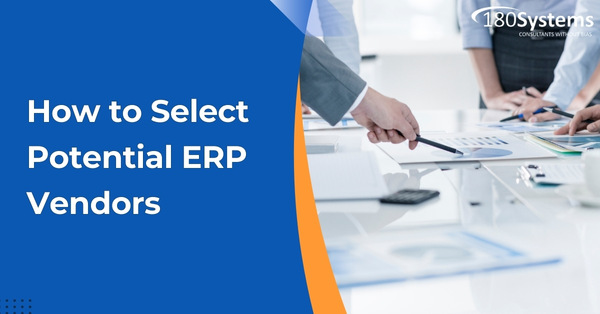ERP Types
| Tier 1 | Tier 2 | Tier 3 | |
|---|---|---|---|
| Customer revenue | > $200M | $25M – $200M | < $25M |
| Customer employees | > 500 | 100 – 500 | < 100 |
| Annual License fees | > $200K | $50K – $200K | < $50K |
| Implementation fees: Annual License fees | > 3:1 | > 1.5:1 | <= 1.5:1 |
There’s no point in considering ERP software from Tier 1 for small companies. However, the Tier 1 vendors like SAP and Oracle will say that their software is applicable not just for Tier 1 but also for Tier 2. This may be true if the company has complex business processes or expects significant growth.
ERP vendors can also be classified based on their target market:
- Vendors with solutions for multiple industries. These vendors offer tier one systems, and it’s not surprising that they are more complicated to setup because of all the industries they support.
- Vendors that offer a solution for a specific industry.
- Vendors that offer an extension developed by a 3rd party for a specific industry. These vendors provide the 3rd party developer with not just the software/platform to develop solutions, but will also market these solutions worldwide making it worthwhile for the 3rd party developers.
When you select an ERP vendor with vertical solutions or extensions, you may encounter small vendors that appear to be a risky choice. However:
- Small companies can be successful.
- They may have the best fit at the right price
- The 3rd parties are certified by the larger ERP vendors
- There are benefits of being a big fish in a small pond.
However, stay away from small vertical vendors even if they have a great fit at a great price if they:
- Are using old technology and not investing in new technology
- Don’t have enough resources to support the implementation or ongoing support
- Are not able to give you good references
- Are not able to demonstrate their financial stability
A strategic ERP vendor selection process ensures that the chosen solution not only meets current operational needs but also supports long-term growth and adaptability.
ERP Vendor Selection – How to Identify Potential ERP Vendors
- Check out our ERP Vendor Selection Tool which provides listings of systems broken out by tier, industry and application
- Internet searches
- Contact colleagues
- Contact industry associations
- Look at trade journals for articles and advertisements
- Attend trade shows
- Contact exhibitors from trade shows
- Contact Us
But the ERP vendor may not be the implementer. — it also requires a strategic approach to select an ERP vendor that aligns with your business needs. However, the ERP vendor may not be the implementer. The success of an ERP implementation depends equally on the software and the implementer. The implementers of ERP software systems are often from smaller companies, but the risks are reduced if:
- The ERP vendor has certified them
- They have demonstrated their knowledge, industry experience and ability to support an implementation
- There are many alternative implementers
ERP Implementers Selection – How to Identify Potential ERP Implementers
- Check out our ERP Implementer Selection Tool, which also includes the implementers of the ERP software systems
- Contact the ERP vendor for their recommendation which should primarily be based on their experience in your industry
- Internet searches
- Contact Us
Recommendation
We recommend casting a wide net of potential ERP vendors. A thorough ERP vendor selection process ensures that you are not overlooking any suitable systems. You don’t want anyone in your company suggesting an additional system that appears to be appropriate when you have completed most of the selection journey.
We also recommend considering both large and small vendors, but don’t waste your time unnecessarily or that of the vendors. You should have a relatively easy process to screen the systems. Our approach is to ask the vendors only to respond to the critical requirements in an RFP, and we aim for 20% of the ERP requirements to be deemed critical.
A well-executed ERP vendor selection process, combined with a thoughtful evaluation of implementers, increases the chances of a successful implementation and long-term business value.
Goodluck and don’t hesitate to contact us.
—
